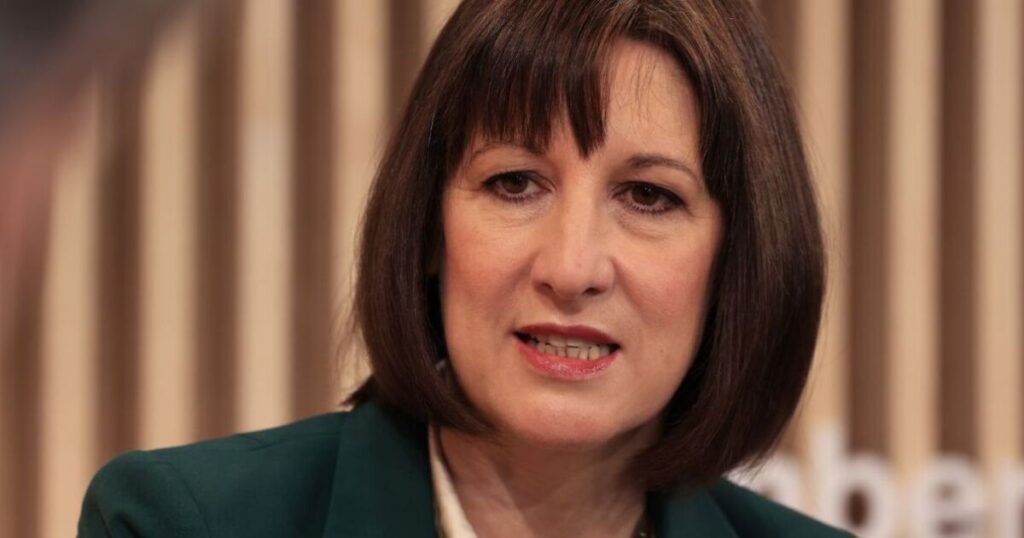
An increasing number of Brits are looking to get married in an attempt to dodge Chancellor Rachel Reeves’ inheritance tax raid, an expert claims.
Budget tax changes announced in October have thrown a spotlight on people’s relationship status, according to one financial adviser.
Back then, Ms Reeves, announced she would be freezing inheritance tax (IHT) allowances and introducing rules that would mean pension pots would be subject to IHT from April 2027.
Emma Sterland, chief financial planning director at Evelyn Partners, said her firm had been getting more enquiries from older clients asking about the implications of the changes on their financial status.
Many were considering the benefits of being married. She said: “Our financial planners have certainly been having more discussions around marriage or civil partnership with older clients in long-term relationships since the Budget.”
Sterland said: “While some of the fuss and commercialism surrounding Valentine’s Day might not be to everyone’s taste, it nevertheless usually prompts people – couples and single folk alike – to ponder their romantic situation.
“Nowhere might that be the case more this year than among the cohort of savers approaching or in retirement – especially those who have amassed substantial pension pots or who own private businesses.”
Sterland said the Budget’s changes had stregthened the case for marriage because spouses would still benefit from being able to pass assets on to a surviving partner.
“Generally, all assets left to a spouse or civil partner are automatically exempt from IHT, and under the proposals as currently drafted, this will include those pension assets affected by the Budget change.”
Last year the percentage of over-16s in England and Wales who were married or in a civil partnership fell below 50%.
The Office for National Statistics estimates that the 2022 figure had dropped to 49.4% from 51.2% a decade previously.
Sterland said there was a “generational gap” with older couples more likely to be married and younger generations showing higher rates of cohabitation, but there are also high rates of divorce among the middle-aged, and even older couples.
“Many of those people don’t get married again but do enter into another long-term relationship, often cohabiting but not necessarily thinking about the financial implications.”
Sterland claimed that many many co-habiting couples accept that they do not have the same rights as a married couple, but others might be less aware.
However, the IHT changes that the Chancellor made at the Budget have now raised the possible tax jeopardy in family finances, particularly among older couples, she claimed.
“This means that even those couples who are clear-eyed about remaining unmarried could start to reassess.”
Sterland said her firm was speaking to couples about the benefits of a a civil partnership as well as marriage.
“It is a legal relationship entered into by two people which is registered and provides couples with the same legal rights and duties that they would have in a lawful marriage – where we use ‘marriage’ or ‘married’ it’s understood the same rights confer to those in civil partnerships.”
Marriage was not a total panacea said Sterland: “Of course, the IHT problem might arise further down the line when the surviving spouse dies.
“While possibly benefitting from two sets of nil-rate bands, their remaining wealth could be inflated by the pension assets from the first death, potentially increasing IHT liability for their children or other beneficiaries – especially if they die soon after their spouse.
“However, for those who are in a relationship but unmarried – whether co-habiting or not – the issue could arise on the first death, leading to potentially much greater IHT exposure than would currently be the case. It is likely that some older couples in long-term relationships will decide to tie the knot to make this problem go away, and it is a conversation that we are having with some clients.
“Anyone who is married should check their pension death benefit nomination, as after this rule change it might be best for many couples’ IHT purposes to stipulate that the pension is paid in total to your spouse when you die, rather than any portion left to children or other family members.”
 Latest World Breaking News Online News Portal
Latest World Breaking News Online News Portal






